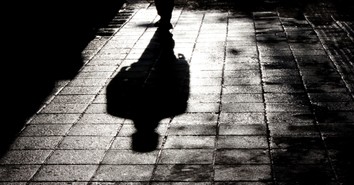Age of Amnesia

The Age of Amnesia
“Those who forget the past are condemned to repeat it.” That aphorism is one of the most overworked and overused maxims of our time—and it isn’t even a faithful quotation. Actually, philosopher George Santayana had argued that “Those who cannot remember the past are condemned to fulfill it.”
Whatever the form, the maxim makes the point that the only way to achieve progress is to know the history we should leave behind. In some sense, the statement rings undeniably true. Nevertheless, I would argue that this shopworn quotation should actually be reversed, for those who cannot remember the past are condemned to lose it. The greater danger in our day is that history will not be repeated.
We are trapped within the tyranny of the contemporary. Many Americans are inclined to agree with the gruff dismissal of car magnate Henry Ford: “History is bunk.” Scores on standardized tests demonstrate that American high school students have little knowledge of history, and are unconcerned about their ignorance. College students seem confused and apathetic about history. In Non Campus Mentis: World History According to College Students, Anders Henriksson provides a fascinating glimpse into college history exams, with students writing about the “Automaton Empire” and the “Iran Hostess Crisis.” One linguistically-challenged student sermonized, “We feel fortunate not to have to live threw these times.” Read it and weep.
Amnesia is a rare but truly horrifying malady. To be robbed of memory is to lose one’s self and identity. To lose memory to accident or disease is tragic. To lose memory by default and apathy is beyond tragedy.
I believe we must turn Santayana’s aphorism on its head. Those who cannot remember the past are condemned not to fulfill or repeat it. To lose our history is to lose our identity, and perhaps even to abandon the faith once for all delivered to the saints. The contemporary church is running on dangerously low levels of doctrine and historical knowledge—and these are inevitably linked together.
What will happen when history is not repeated? A great church council was convened in the year 325 to deal with the true nature of Christ. Arius, an elder in Alexandria, had taught that Jesus was not the preexistent Son of God, but that He had been adopted as Son by the Father. Led by Bishop Athanasius, the Council of Nicaea condemned Arius’ teaching and confirmed that Christ was God indeed, of the same substance as the Father. Orthodoxy and heresy were hanging in the balance, and the church had to make a decision. Would today’s church achieve the same clarity?
As the Roman Empire collapsed to the barbarians, Augustine of African Hippo, the towering theologian of his age, interpreted these events in light of the sovereign purpose of God. In The City of God, Augustine distinguished between the City of Man, with its promise of earthy pleasures, and the City of God, with its promise of eternal glory. Do today’s Christians understand the difference?
Centuries later, Martin Luther stood before the Holy Roman Emperor and his court at the Diet of Worms and denied the authority of the Pope, claiming the sole authority of Scripture to bind his conscience. He preached justification by faith alone, and put his very life on the line. Would today’s preachers demonstrate the same courage?
Our Baptist forefathers and foremothers suffered whippings, imprisonment, and persecution because they would not compromise their convictions on believers’ baptism and congregational church government. Will today’s generation of Baptists willingly forfeit what our ancestors so gallantly achieved?
During the dark days of racial segregation, Southern Seminary professors like Henlee Barnette risked jail and worse to teach African-American students on our campus, breaking the law for the cause of Christ. Would we now be willing to risk so much for so noble a cause?
Amnesia is not only debilitating—it is downright dangerous. Without historical awareness, we rob ourselves of the wisdom of past generations. G. K. Chesterton spoke of this wisdom as “the democracy of the dead” that allows our ancestors a voice. The heresies of the present are understandable only within their historical context. Most are recycled from the past. The legacies left by Christians like Augustine, Martin Luther, John Bunyan, or Corrie Ten Boom would be invaluable to today’s Christians, if only they were known.
The lessons of history were hard earned. The perspective of historical awareness helps us to avoid the mistakes of the past, and also to preserve the achievements of our forebears. At Southern Seminary, church history is not merely an academic discipline of the first rank—it is a stewardship of something precious. This task is all the more urgent in the Age of Amnesia.
-30-
Originally published February 27, 2004.







